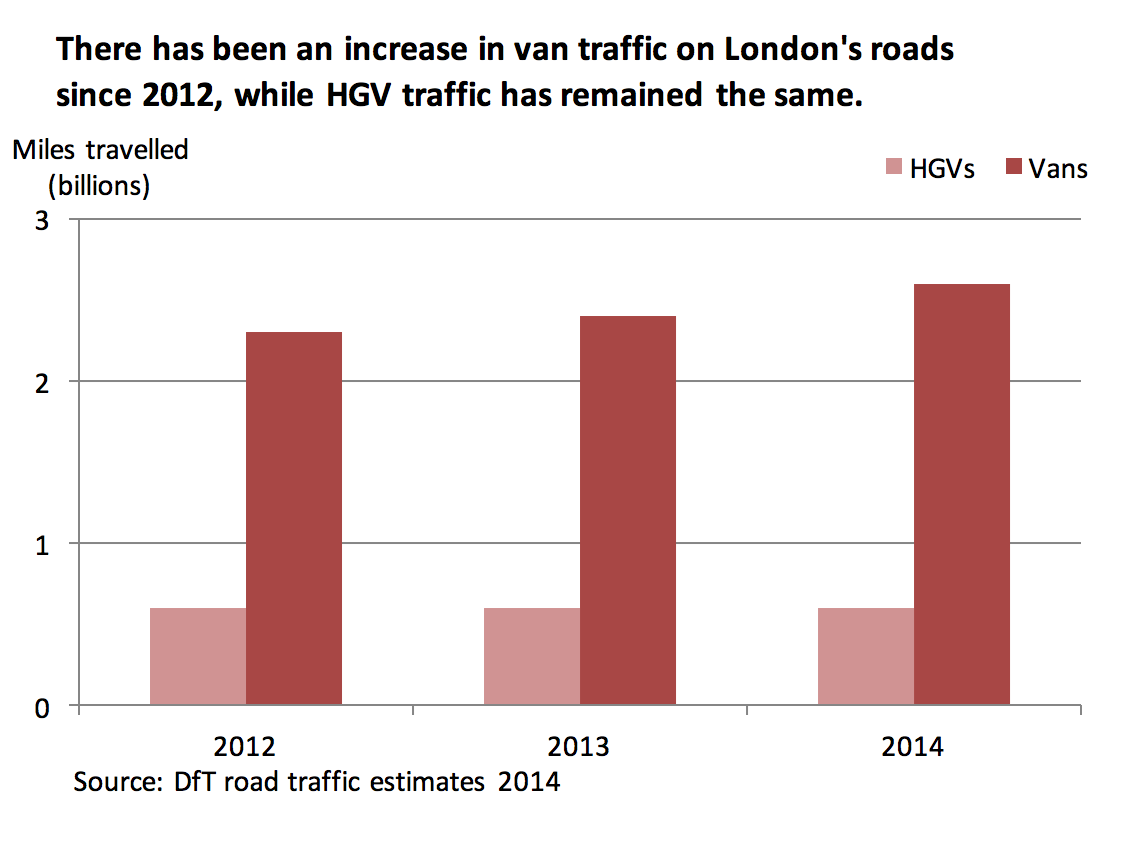 As digital shopping mushrooms, so the ‘fulfillment’ part of the equation has brought fleets of new delivery vans onto London’s already crowded and polluted streets. Valerie Shawcross looks at the spiraling issue and seeks readers’ help in advising London’s legislators what to do about the issue.
As digital shopping mushrooms, so the ‘fulfillment’ part of the equation has brought fleets of new delivery vans onto London’s already crowded and polluted streets. Valerie Shawcross looks at the spiraling issue and seeks readers’ help in advising London’s legislators what to do about the issue.
It’s Black Friday today – a crazy one-day shopping frenzy we have adopted from the USA – and analysts predict it could be the UK’s first £1bn sales day, as more retailers and shoppers than ever become involved.
DPD UK expects to deliver 700,000 parcels this weekend, compared to about 225,000 on a typical weekend. Some industry insiders equate that to about 40,000 delivery drivers fighting to supply the fastest or cheapest deliveries. Overall, there are 3.5 million vans registered in Britain, that’s an increase of two thirds since 1994, when internet shopping was still the stuff of Sci-fi films.
According to the Society of Motor Manufacturers and Traders, the number of vans on the road has increased by 17 per cent this year alone. But who doesn’t shop online these days? The convenience is fabulous – and do we voracious consumers really care about a few more vans on our streets? Huge national chain retailers are taking full advantage of our ‘want it now’ mindset by offering next day and even same day deliveries. Looking beyond this weekend, it was recently reported that a lack of lorry drivers will mean businesses relying on vans for Christmas deliveries. If figures suggesting a shortfall of 50,000 drivers are correct – how many more vans could that actually mean?
 And in London, with Cycle Super Highway roadworks and a massive increase in the number of Private Hire licenses, the problems have been exacerbated, to put it mildly. Is a perfect storm of commercial traffic misery brewing this festive season? Will it mean sad, tear-stained baby faces on Christmas Day and difficult explanations about why Santa is delivering the presents after Christmas this year? “Rudolph hurt his leg and had to go to the vet darling.”
And in London, with Cycle Super Highway roadworks and a massive increase in the number of Private Hire licenses, the problems have been exacerbated, to put it mildly. Is a perfect storm of commercial traffic misery brewing this festive season? Will it mean sad, tear-stained baby faces on Christmas Day and difficult explanations about why Santa is delivering the presents after Christmas this year? “Rudolph hurt his leg and had to go to the vet darling.”
But, back to the vandemonium – if we do want to put the brakes on van traffic growth, how do we do it? Are we prepared, for example, to change the way we shop? Instead of getting our shopping delivered to home or work, would we be willing to use a collection locker, or pick up our order from a local shop (ideally not driving there first)? We should also consider the costs to the environment from more van traffic. Some delivery companies are starting to use more environmentally friendly delivery methods, like cargo bikes and electric vehicles. However, it’s inevitable that to expand their use, significant investment is needed. Would we be prepared to pay a premium for our goods if they were delivered by an electric vehicle? Perhaps it’s a simple case of convenience winning over congestion.
This is a lot of questions, but they are not here just for rhetorical effect. The London Assembly’s Transport Committee is right now investigating the growth of van traffic on London’s roads and how people in the capital feel about it. Have we gone too far to give up our clicking obsession – snapping our fingers and making things magically appear? Is there an appetite to find alternatives?
So here’s an opportunity for any reader of this post to take part in either of two surveys that will inform the Committee’s investigation.
– One relates to possible delivery alternatives – click here
– The other is a short Yes/No truth test, which aims to gauge your honest feelings about the issue – click here
___
Note: The article represents the views of the author and not those of the British Politics and Policy blog nor the LSE. Please read our comments policy before posting.
 Valerie Shawcross CBE AM is Chair of the London Assembly Transport Committee
Valerie Shawcross CBE AM is Chair of the London Assembly Transport Committee
Featured image credit: @Doug88888 CC BY-NC-SA 2.0








That was supposed to say vans are more efficient *than* private cars.
It should be noted that people need to get their packages one way or another. Vans are more efficient that using private cars, so vans may actually be reducing traffic.